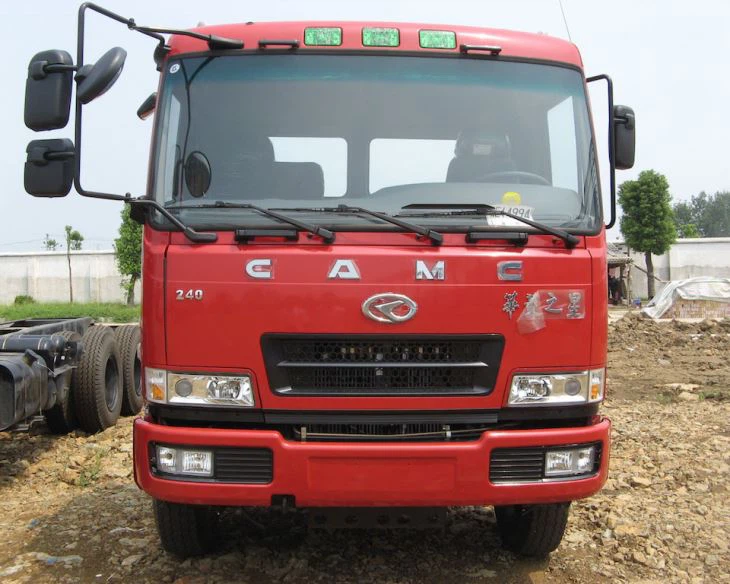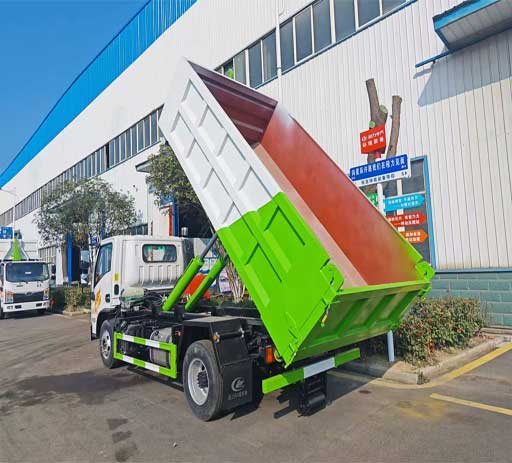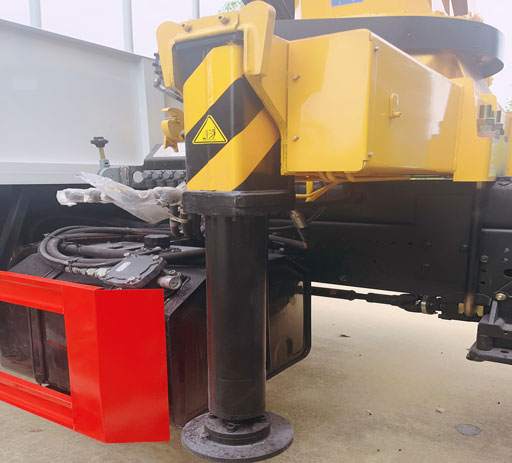All You Need to Know About 10 Wheeler Dump Trucks

Introduction
10 wheeler dump trucks play a crucial role in the construction, mining, and waste management industries. Known for their significant hauling capability and versatility, these trucks are essential for transporting heavy materials. With a capacity to carry up to 16 cubic yards of material, they are ideal for a variety of tasks, from carrying gravel and asphalt to transporting demolition debris. This article delves into everything you need to know about 10 wheeler dump trucks – from their specifications and types to their advantages, operational tips, and maintenance. Additionally, we’ll cover some frequently asked questions to provide a more comprehensive understanding.
What is a 10 Wheeler Dump Truck?
A 10 wheeler dump truck is characterized by having ten wheels and typically comes equipped with a large, open-box bed that can be tilted to unload materials. The standard setup includes a front axle and a rear axle configuration, with dual wheels on the rear for enhanced load stability and weight distribution. The truck’s design ensures it can handle substantial loads while maintaining maneuverability on various terrains.
Specifications of a 10 Wheeler Dump Truck
Understanding the specifications of a 10 wheeler dump truck is essential for making an informed purchase or rental decision. Here are some key specs:
- Payload Capacity: Up to 16 cubic yards or about 20 tons.
- Engine Power: Typically ranges from 300 to 450 horsepower.
- Weight: Gross Vehicle Weight Rating (GVWR) usually between 26,000 to 33,000 pounds.
- Dimensions: Varies but generally about 24 feet long, 8.5 feet wide, and 10-12 feet high.
- Tires: 10 wheels with reinforced tires suited for heavy loads.
Types of 10 Wheeler Dump Trucks
10 wheeler dump trucks come in various types, each designed for specific tasks. Understanding these types helps businesses choose the right truck for their needs.
Conventional Dump Truck
The most common type, the conventional dump truck, features a straight truck design and is used primarily in construction and landscaping.
Articulated Dump Truck
Articulated dump trucks have a hinge between the cab and the dump box, which allows for better maneuverability on uneven terrain, making them suitable for mining applications.
Specialized Dump Trucks
These include heavy-duty models designed for specific industries, such as mining, which may have additional features like reinforced beds or specialized equipment for unloading materials.
Advantages of Using 10 Wheeler Dump Trucks
Investing in a 10 wheeler dump truck offers multiple benefits that can enhance operational efficiency.
High Payload Capacity
With a significant load capacity, these trucks allow for fewer trips, leading to reduced transportation costs.
Versatility
10 wheeler dump trucks can be utilized for various activities including hauling dirt, gravel, sand, and construction debris, making them asset in multiple settings.

Maneuverability
Despite their size, these trucks are designed to maneuver well on job sites and in urban environments, making them effective for both large and small projects.
Enhanced Stability
With dual rear wheels, 10 wheeler dump trucks are more stable when loaded, reducing the risk of tipping during operation.
Common Applications of 10 Wheeler Dump Trucks
10 wheeler dump trucks are utilized in various industries, each with specific applications.
Construction Sites
These trucks are actively employed in construction projects to transport aggregates, concrete, and other materials to and from the site.
Mining Operations
In the mining sector, 10 wheeler dump trucks are used for carrying ores and other heavy materials from one location to another within the site.
Landscaping and Earthworks
Landscapers and earthmoving contractors use these trucks for transporting soil, rock, and other landscape materials.
Waste Management
Many waste management companies utilize 10 wheeler dump trucks to haul debris and other discarded materials to disposal sites.
Operational Tips for 10 Wheeler Dump Trucks
Operating a 10 wheeler dump truck requires knowledge of best practices to ensure safety and effectiveness.
Pre-Operation Inspection
Always conduct a pre-operation inspection that includes checking tire pressure, fluid levels, brakes, and lights. This will help identify any issues before starting the job.
Load Management
Be mindful of the load capacity and ensure the truck is evenly loaded to maintain stability during transport.
Driving Techniques
Learn proper driving techniques, especially when navigating rough terrains. Taking corners slowly and avoiding sudden stops can help prevent accidents.
Dumping Procedures
When dumping materials, position the truck on stable ground, ensure the area is clear of obstacles, and operate the hydraulic lift system with caution.
Maintenance of 10 Wheeler Dump Trucks
Regular maintenance is crucial for the longevity and efficiency of 10 wheeler dump trucks. Here are important maintenance tips:
Regular Oil Changes
Changing the engine oil regularly ensures engine longevity and optimal performance. Check manufacturer recommendations for oil type and change intervals.
Tire Maintenance
Monitor tires for wear and tear, maintain correct pressure, and replace them when necessary. Properly inflated tires enhance fuel efficiency and stability.
Brake Checks
Regularly inspect the braking system as it is critical for safe operation, especially under heavy loads.
Body and Frame Inspections
Inspect the dump body and frame for any signs of rust or damage. Regularly clean and protect against corrosion.
Cost Considerations for 10 Wheeler Dump Trucks
The cost of acquiring a 10 wheeler dump truck can vary based on several factors including type, age, brand, and features. Below are key considerations.
Purchase vs. Rental Costs
Deciding whether to purchase or rent a truck can depend on the volume of work. Rental rates vary but can range from $200 to $800 per day, while purchasing a new truck can cost between $100,000 and $200,000.
Operating Expenses
Consider fuel costs, maintenance, insurance, and potential driver salaries as recurring expenses associated with owning a dump truck. A well-maintained truck can improve efficiency and reduce repair costs in the long run.
Frequently Asked Questions (FAQ)
What is the typical size of a 10 wheeler dump truck?
Most 10 wheeler dump trucks are approximately 24 feet long, 8.5 feet wide, and can range from 10 to 12 feet high.

How much weight can a 10 wheeler dump truck carry?
A 10 wheeler dump truck can typically carry about 20 tons, depending on the type and configuration of the truck.
Are 10 wheeler dump trucks good for residential projects?
Yes, they can be very effective for residential projects, especially for moving large amounts of dirt, gravel, or debris.
Do I need a special license to operate a 10 wheeler dump truck?

Yes, you typically need a Commercial Driver’s License (CDL) to operate a 10 wheeler dump truck legally.
What is the fuel efficiency of a 10 wheeler dump truck?
Fuel efficiency varies by model and load but generally ranges from 6 to 10 miles per gallon.
How do I choose the right 10 wheeler dump truck for my needs?
Consider factors such as the types of materials you will transport, the truck’s payload capacity, and your budget. Test driving different models may also help you make an informed decision.
